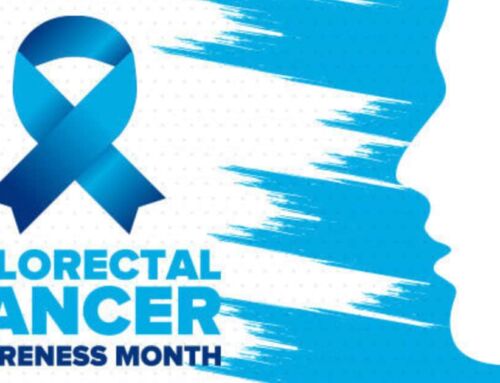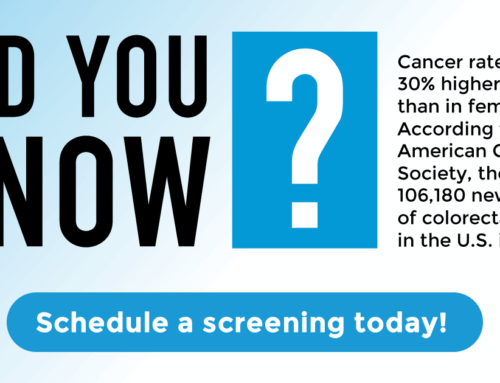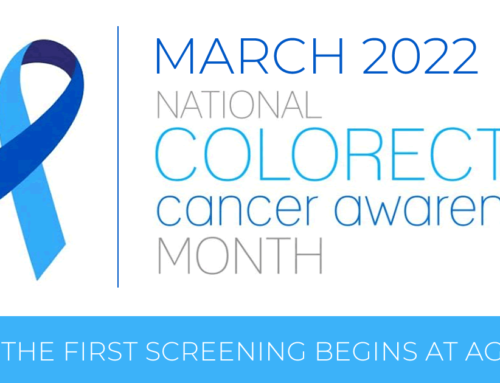Colon cancer affects people of all ages, genders, races, and ethnicities. Alarmingly, it’s the second most common cause of cancer deaths in the United States.
Despite its high incidence and mortality, colon cancer is one of the most preventable cancers. Knowing how to reduce your risk of colon cancer can save your life.
This article will discuss what colon cancer is and the factors that increase your risk. We’ll outline 7 key ways to reduce your risk of colon cancer and the importance of colon cancer screening. Keep reading to learn more about colon cancer and how you can take your health into your own hands.
What Is Colon Cancer?
Colon cancer is a type of cancer that originates in the large intestine or colon. It’s the second leading cause of cancer-related deaths in the United States. Most colon cancers start as small polyps in the lining of the colon.
It usually takes colon polyps several years to become cancerous. When caught early and removed as a polyp, colon cancer is almost always curable. But colon cancer that goes undetected and spreads to other parts of the body often has a poor prognosis.
The survival rate for colon cancer is very high when caught early. Colon cancer that’s localized to the colon or rectum and hasn’t spread to other parts of the body has a 91% 5-year survival rate. Sadly, colon cancer that has spread to distant parts of the body such as the liver or lungs only has a 14% 5-year survival rate.
Unchangeable Colon Cancer Risk Factors
Several risk factors can increase your likelihood of developing colon cancer. Unfortunately, you have no control over some of these factors. Certain risk factors for colon cancer are unchangeable.
With this in mind, having one or many of these risk factors doesn’t mean you will develop cancer. But understanding your known risk factors can help you make informed decisions about your health.
Older Age
Your risk of colon cancer increases with age. Colon cancer most commonly affects people after age 50. Younger adults can still get colon cancer, but it is much less common.
A Personal History of Colon Cancer or Polyps
If you’ve had colon polyps or colon cancer in the past, you have a greater risk of colon cancer recurrence. Previous instances of colon polyps or colon cancer make it more likely for new cancers to develop in the colon or rectum.
A Personal History of Inflammatory Bowel Disease
People with inflammatory bowel disease (IBD) have an elevated risk of colon cancer. If untreated, chronic inflammation in the colon due to ulcerative colitis or Crohn’s disease can lead to cellular dysplasia. This is when the cells that line the colon become abnormal and can mutate into cancer over time.
A Family History of Colon Cancer or Polyps
People with a family history of colon cancer or polyps are at an increased risk of colon cancer. In fact, around 1 in 3 people who develop colon cancer have close family members who were diagnosed with the disease. This risk is even higher if the relative is a parent, sibling, or child. What’s more, having one or more relatives with colon cancer or a relative under 50 with colon cancer amplifies your risk.
Inherited Colon Cancer Syndromes
Sometimes, colon cancer can run in families due to inherited genes. Around 5% of people with colon cancer have gene mutations that cause cancer. Lynch syndrome and familial adenomatous polyposis (FAP) are the two most common hereditary colon cancer syndromes.
Race and Ethnicity
Certain racial and ethnic backgrounds have higher rates of colon cancer. African Americans have the greatest rates of colon cancer and colon cancer deaths in the United States. Jews of Eastern European descent have an increased risk of colon cancer compared to other ethnic groups worldwide.
Type 2 Diabetes
People who have type 2 diabetes have an elevated colon cancer risk and a poorer prognosis after diagnosis. Type 2 diabetes shares similar risk factors to colon cancer, such as obesity and a sedentary lifestyle.
7 Ways to Reduce Your Risk of Colon Cancer
Many lifestyle factors such as diet, weight, and exercise have a strong link to colon cancer. Changing these risk factors can lower your risk of this disease. Keep reading to learn how you can prevent colon cancer.
-
Quit Smoking
Smoking exposes the body to potent carcinogens, which can increase your risk of numerous types of cancer. People who smoke tobacco are more likely to develop colon cancer than people who don’t smoke. If you’re a smoker, quitting can reduce your risk of colon cancer.
-
Drink Less Alcohol
Drinking alcohol increases the risk of colon cancer. Even light alcohol consumption makes you more susceptible to cancer. Limiting your alcohol intake to 1 or 2 drinks per day can lower your chances of developing colon cancer.
-
Be More Physically Active
Living a sedentary lifestyle is closely linked to colon cancer. Regular moderate to vigorous exercise can help prevent the development of colon cancer. Being more physically active can improve your gut health and reduce your risk of cellular mutations in the colon.
-
Stay at a Healthy Weight
Obesity is a risk factor for many diseases, including cancer. People who are overweight or obese are more likely to develop colon cancer. You can lower your disease risk by maintaining a healthy weight through diet and exercise.
-
Eat a Plant-Based Diet
Eating a balanced diet made up of plant-based foods can reduce your risk of colon cancer. Plant-based foods contain many beneficial nutrients such as vitamins, minerals, fiber, and polyphenols that can protect your gut health and reduce chronic inflammation.
-
Know the Symptoms of Colon Cancer
Knowing the symptoms of colon cancer can help you identify when to see a doctor for digestive issues. Colon cancer doesn’t always cause symptoms. But when it does, the most common symptoms are:
-
- A change in bowel habits or stool consistency
- Rectal bleeding or blood in the stool
- Unexplained weight loss
- Abdominal discomfort or pain.
New onset weakness or fatigue If you experience any of these symptoms or know someone who does, please contact your doctor to be evaluated for colon cancer. Many conditions can cause similar symptoms, so this doesn’t mean you have colon cancer. But it’s important to see a doctor to rule out potential medical complications.
-
-
Get Screened for Colon Cancer
Colon cancer screening is the best way to prevent colon cancer. Unfortunately, most people don’t experience symptoms of colon cancer and are unaware of its existence until it’s too late. Getting screened for colon cancer can detect colon cancer early and save lives.
Colon Cancer Screening Options
The two most popular colon cancer screening options are a colonoscopy and at-home testing. At-home testing methods include Cologuard, Fecal Immunochemical Blood Test (FIT), and Fecal Occult Blood Test (FOBT). Use this link to find more information about your screening options.
A colonoscopy is the gold standard test for colon cancer screening because it can detect and remove colon polyps in the same exam. Dr. Havranek recommends screening colonoscopies over at-home tests for his patients. But no matter what test you choose, the most important thing is to get screened.
Getting screened for colon cancer, no matter the screening method, can prevent colon polyps or cancer from going undetected. Don’t let yourself become a statistic with something as preventable as colon cancer.
Understanding Colon Cancer Prevention
Colon cancer is preventable. Detecting colon cancer early can save your life. People with unchangeable colon cancer risk factors may need to receive colon cancer screening earlier or more frequently. Most healthy adults at average risk of colon cancer should begin screening at age 45.
A colonoscopy is the best and most effective screening test. But at-home testing is also available. You should talk to your doctor to determine the best colon cancer screening option for you.
You can lower your risk of colon cancer by practicing healthy lifestyle habits. Quitting smoking, drinking alcohol in moderation, and maintaining a healthy weight can help prevent colon cancer. You should also increase your daily physical activity and consume more plant-based foods to support your gut health.
For more information about colon cancer or other digestive health conditions, call our office at 210-615-8308 or schedule an appointment online.




